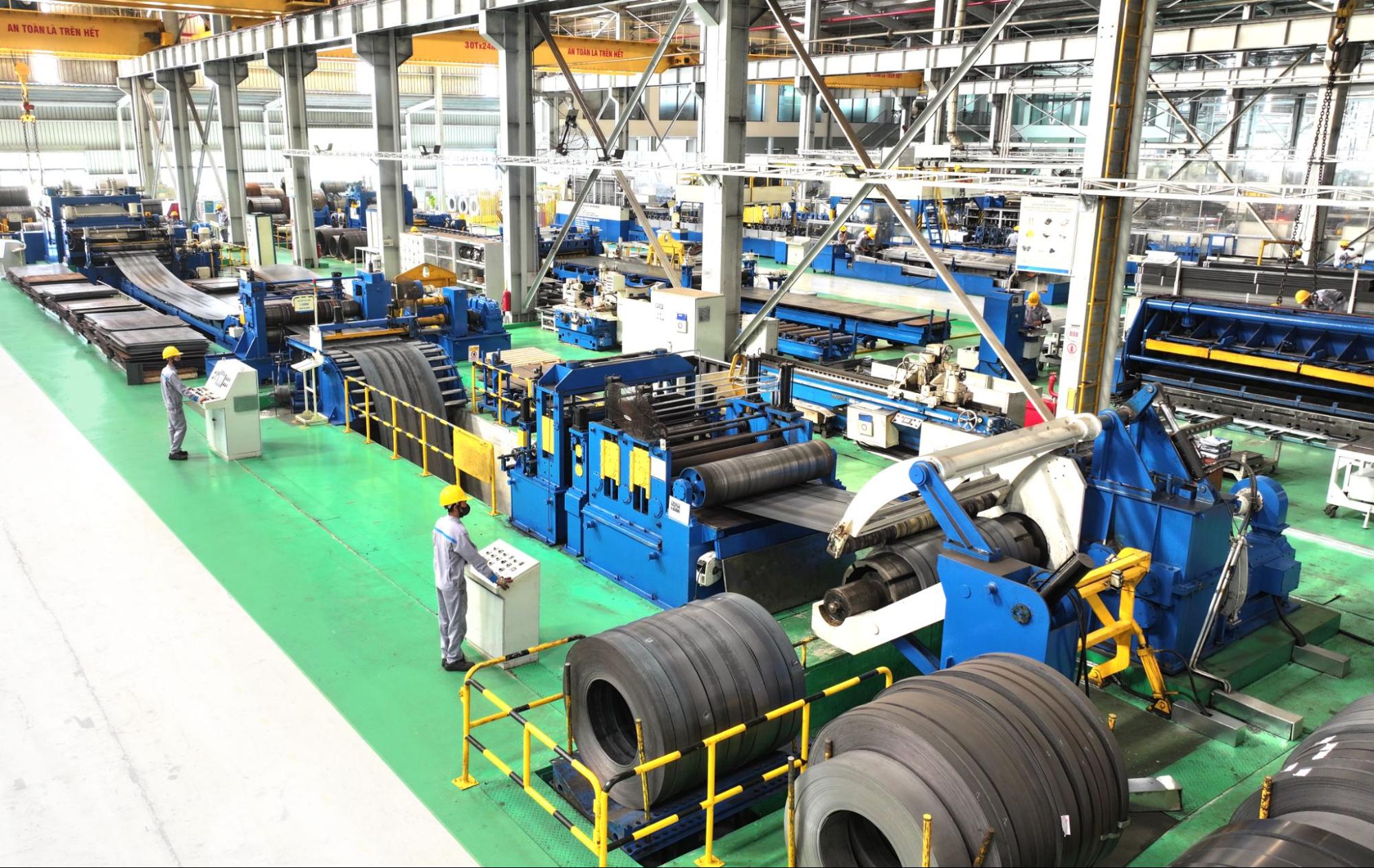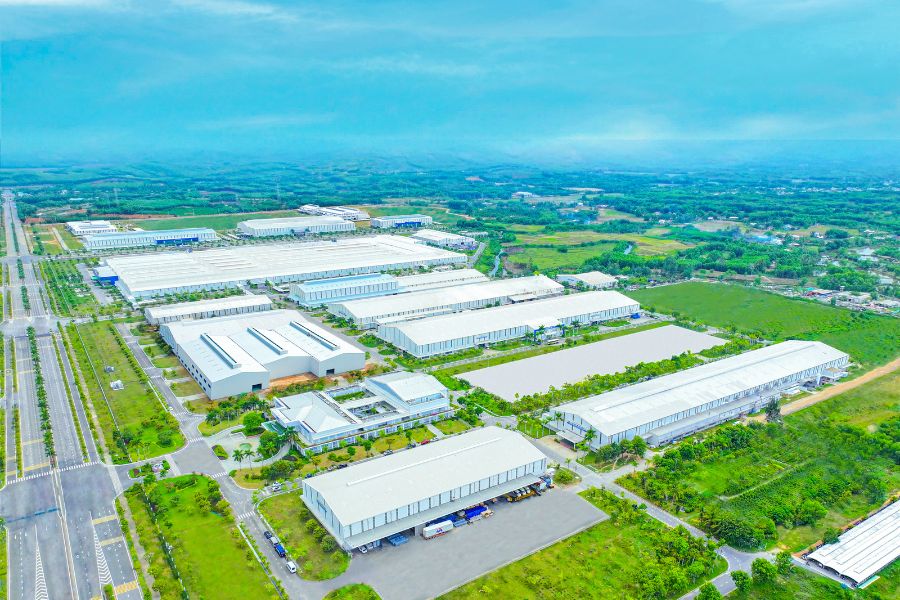Product information
Contract Manufacturing Services: Expert Solutions for Global Enterprises
In today’s competitive global market, many companies are turning to contract manufacturing services to optimize production costs, enhance quality, and accelerate time-to-market. THACO INDUSTRIES, a leading partner in this field, delivers end-to-end solutions from product design and manufacturing to strict quality control, enabling businesses to focus on core strengths while driving sustainable growth.
Contract Manufacturing Services: An Overview
Manufacturing partnerships through contract services have become fundamental components of modern supply chain strategies. Companies worldwide, particularly in Europe, recognize the competitive advantages of collaborating with specialized manufacturers who possess technical expertise, production capacity, and regulatory compliance capabilities. Strategic partnerships enable organizations to concentrate resources on core competencies while ensuring reliable, cost-effective production outcomes.
Defining Contract Manufacturing Services
Contract manufacturing services allow businesses to outsource production to trusted third-party manufacturers. These providers deliver components, assemblies, or finished products based on client specifications who produce components, assemblies, or complete products according to client specifications. Specialized providers handle manufacturing processes, quality control, and logistics coordination while maintaining strict adherence to brand requirements and industry standards.
The scope of contract manufacturing goes beyond basic outsourcing, extending to comprehensive solutions that include design optimization, material sourcing, process improvement, and supply chain management. Contract manufacturers serve as extensions of client organizations, delivering scalable production capabilities without requiring significant capital investment in facilities, equipment, or specialized personnel.
Manufacturing partners assume responsibility for procurement, production planning, quality assurance, and delivery coordination while clients maintain ownership of intellectual property, product specifications, and market positioning strategies.

Core Elements and Operational Processes
Successful contract manufacturing projects follow key operational phases. They start with collaborative design to improve manufacturability and reduce costs. Clear agreements outline project timelines, protect intellectual property, and ensure compliance with target market regulations, giving businesses confidence and control throughout the outsourcing process.
Essential operational components create structured workflows:
- Design collaboration and sourcing activities – Leveraging established supplier networks to secure high-quality materials at competitive pricing
- Production phases and quality testing – Specialized manufacturing processes with integrated quality control protocols
- Communication frameworks and project management – Sophisticated systems coordinating activities across multiple stakeholders
Effective collaboration depends on transparent information sharing, regular progress monitoring, and proactive issue resolution mechanisms that ensure project milestones align with market launch schedules.
Range of Services in Contract Manufacturing
Modern contract manufacturing covers not only traditional production but also a comprehensive portfolio of services supporting the entire product lifecycle. Service providers offer integrated solutions addressing design optimization, supply chain management, production execution, and post-manufacturing support activities that create value across multiple business functions.
View more: High-quality parts manufacturing and assembly solutions
Product Concept and Engineering Assistance
Engineering support services include prototype development and design validation testing. Manufacturing assessments optimize product specifications for efficient production. Technical teams collaborate with client engineers to identify design improvements. Material alternatives and process modifications enhance product performance while reducing costs.
Design for Manufacturing principles guide collaborative engineering efforts. Product designs accommodate production capabilities, quality requirements, and cost targets. Engineering expertise encompasses mechanical design and materials science. Process engineering knowledge addresses regulatory compliance specific to target markets.
Value engineering activities identify cost reduction opportunities. Performance enhancement and production efficiency improvements occur throughout design development processes.
Strategic Sourcing and Supply Management
Supply chain optimization services leverage established supplier networks, procurement expertise, and volume purchasing advantages to secure high-quality materials at competitive costs. Strategic sourcing activities include supplier evaluation, qualification processes, and ongoing performance monitoring to ensure reliable material availability and quality consistency.
Procurement efficiency improvements result from consolidated purchasing volumes, supplier relationship management, and supply chain risk mitigation strategies. Contract manufacturers often maintain multiple qualified suppliers for critical components, ensuring supply continuity and competitive pricing structures.
Vendor partnership programs create collaborative relationships that support continuous improvement initiatives, cost reduction projects, and quality enhancement activities across the entire supply network.
Production, Assembly, and Quality Oversight
Scalable production systems adapt flexibly to demand fluctuations and seasonal changes. Market growth trajectories require flexible manufacturing systems and workforce management strategies. Production lines incorporate advanced automation technologies and quality monitoring systems. Process control mechanisms ensure consistent output quality and delivery performance.
Quality control processes encompass comprehensive inspection and testing protocols:
- Incoming material inspection – Verification of supplier materials against specifications and quality standards
- In-process monitoring – Real-time quality control during manufacturing operations and assembly processes
- Final product testing – Complete validation according to ISO 9001 standards and industry-specific certifications
- Statistical process control – Data-driven methods identifying process variations and supporting improvement initiatives
Packaging, Logistics, and Post-Sales Support
End-to-end service capabilities include custom packaging design and branding integration. Protective packaging solutions ensure product integrity during transportation and storage. Packaging services accommodate various distribution channels and retail requirements. Consumer preferences align with optimized material costs and environmental impact considerations.
Logistics management encompasses warehousing and inventory management systems. Order fulfillment and distribution coordination ensure timely delivery to specified destinations. Transportation planning optimizes shipping costs and delivery schedules. Service levels meet client requirements and customer expectations.
Post-sales support services enhance customer satisfaction and brand reputation:
- Warranty administration – Comprehensive warranty handling and claim processing systems
- Repair services – Technical repair capabilities and component replacement programs
- Replacement parts management – Inventory systems supporting aftermarket service requirements
- Technical support – Expert assistance throughout the product lifecycle and customer relationships
Industry Applications of Contract Manufacturing
Contract manufacturing services support diverse industrial sectors requiring specialized capabilities. Regulatory compliance and quality standards vary across application domains. Manufacturing partners develop industry-specific expertise addressing unique challenges. Technical requirements and market dynamics influence sector-specific approaches.
Consumer Goods and Household Solutions
Consumer product manufacturing encompasses kitchen appliances and personal care items. Cleaning products and household accessories require cost-effective production approaches. Manufacturing processes involve injection molding and assembly operations. Finishing techniques create appealing product aesthetics and functional performance standards.
Benefits include reduced manufacturing costs through economies of scale. Accelerated time-to-market results from established production capabilities. Access to specialized equipment eliminates significant capital investment requirements for in-house production.
Vietnam contract manufacturing offers distinct advantages for consumer goods production. Competitive labor costs combine with improving technical capabilities and growing industrial infrastructure.
View more: High-Quality Household Electric Supply Manufacturer
Automotive and Industrial Parts
Precision-engineered automotive components require specialized manufacturing processes and stringent quality control. Industry standard compliance includes IATF 16949 certification requirements. Component categories encompass engine parts, transmission components, and electrical systems. Safety-critical assemblies demand exceptional reliability and performance consistency.
Industrial parts manufacturing supports machinery, equipment, and infrastructure applications. Precision machining, casting, fabrication, and assembly services address diverse requirements. Quality standards often exceed consumer product specifications. Advanced measurement systems, material traceability, and comprehensive documentation support operations.
Supply chain reliability becomes critical for automotive and industrial applications. Production disruptions create significant cost implications across multiple stakeholder levels. Customer impact extends throughout supply chain relationships and market positioning.
Electronics, Medical Devices, and Specialized Products
Electronics manufacturing encompasses printed circuit board assembly and consumer electronics production. Industrial control systems and Internet of Things devices require specialized equipment. Controlled environments and technical expertise support electronic systems integration.
Specialized sector requirements demand advanced capabilities:
- Electronics production – Surface mount technology, automated optical inspection, and functional testing ensure regulatory compliance
- Medical device manufacturing – Exceptional quality control with FDA, CE marking, and ISO 13485 standards compliance
- Aerospace and defense applications – Advanced manufacturing capabilities, security clearances, and industry-specific regulatory compliance
- Renewable energy solutions – Specialized materials, processes, and quality systems governing sustainable technology production
Advantages of Collaborating with Expert Contract Manufacturers
Strategic partnerships with established contract manufacturers create significant business advantages. Specialized capabilities, operational efficiency, and risk mitigation benefits enhance competitive positioning. Collaborations enable companies to focus resources on core competencies. World-class manufacturing capabilities and market expertise become accessible through partnerships.
Cost-Effective Production and Flexible Scaling
Capital investment reduction eliminates manufacturing facility requirements. Specialized equipment and production workforce development costs decrease significantly. Companies allocate resources toward research and development initiatives. Marketing programs and business expansion activities benefit from predictable operating expense models.
Scaling advantages provide operational flexibility across market conditions:
- Reduced capital expenditure – Eliminates fixed overhead burdens and equipment obsolescence risks
- Demand accommodation – Handles market fluctuations, seasonal variations, and business growth trajectories
- Regional advantages – Contract manufacturing services Asia region providers offer scaling capabilities and cost competitiveness
Risk mitigation benefits include reduced exposure to technology changes. Manufacturing process innovations require ongoing investment and specialized expertise development.
Access to Advanced Manufacturing Technology
Automation technologies and robotics systems enhance production efficiency and quality consistency. Operational flexibility increases while labor dependency and manufacturing costs decrease. Contract manufacturers invest in state-of-the-art equipment. Individual companies find economic justification challenging for specific production volumes.
Innovation-driven techniques such as additive manufacturing and advanced materials processing enhance flexibility and product innovation. Industry 4.0 implementation and sustainable manufacturing practices create competitive advantages. Market differentiation opportunities emerge from technology access and specialized capabilities.
Technology access extends to specialized software systems and quality management platforms. Supply chain visibility tools enhance operational transparency and decision-making capabilities.
Consistent Quality and Compliance with Standards
Global certification maintenance includes comprehensive standard compliance. ISO 9001, ISO 14001, and IATF 16949 certifications ensure market access. FDA registration, CE marking, and industry-specific quality standards support regulatory compliance. Multiple jurisdiction requirements benefit from shared certification investments across client relationships.
Brand reputation protection results from consistent product quality and reliable delivery performance. Comprehensive quality documentation supports customer satisfaction and market positioning objectives.
Quality assurance systems encompass supplier qualification and incoming inspection protocols. Process control and final testing procedures identify quality issues before product shipment. Customer protection and brand integrity remain priority considerations throughout operations.
Read more: Difference between OEM vs Contract Manufacturer: Pros, Cons & How to Choose
Innovative Contract Manufacturing Solutions by THACO INDUSTRIES
THACO INDUSTRIES – a sub-holding of THACO, operating in mechanical engineering and supporting industries – has established a regional-scale component manufacturing hub in Vietnam, with a total investment exceeding USD 1 billion. The complex comprises 18 specialized plants certified to ISO 9001:2015, ISO 14001:2015, and in relevant units, IATF 16949:2016, ensuring compliance with stringent international quality and environmental standards.

These facilities are equipped with state-of-the-art machinery imported from the US, Germany, Italy, and Japan, reinforcing THACO INDUSTRIES’ ability to deliver precision-engineered components that meet the demanding requirements of global OEMs.
THACO INDUSTRIES currently supplies components such as body structures, chassis parts, springs, electrical harnesses, plastic parts, automotive glass and more to leading OEMs including BMW, Peugeot, Hyundai, and Isuzu. Products are exported to European markets such as Germany and Poland, in addition to North America, Japan, South Korea, and Australia. This proven track record demonstrates THACO INDUSTRIES’ capability to provide cost-effective, high-quality contract manufacturing solutions while maintaining strict adherence to EU regulations.
In today’s highly competitive global market, partnering with a trusted provider of contract manufacturing services enables EU enterprises to accelerate time-to-market, ensure quality, and optimize costs. THACO INDUSTRIES is ready to be your strategic partner, delivering sustainable and efficient manufacturing solutions.
Contact us today via email: partsales@thaco.com.vn or hotline: (+84) 348 620 063 to explore a strategic partnership for sustainable growth and long-term success.


